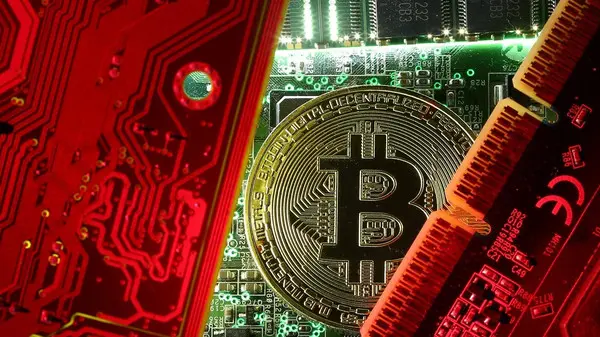
In a groundbreaking achievement, Bitcoin has overtaken Saudi Aramco, the Saudi Arabian oil giant, to become the world’s 7th largest asset by market capitalization. This milestone underscores the unprecedented rise in Bitcoin’s value and its growing prominence as a store of value among global investors. With the cryptocurrency’s market cap soaring, it has now positioned itself alongside some of the most valuable companies and commodities in the world.
As of today, Bitcoin’s market capitalization stands at an impressive $1.1 trillion, narrowly surpassing Aramco, which has long held a leading position among global assets. This surge is a testament to Bitcoin’s staying power and influence as a digital currency, proving its potential to contend with some of the world’s most established economic players. This achievement is particularly notable as it places Bitcoin in a prestigious group that includes major corporations like Apple, Microsoft, and Amazon, as well as traditional asset giants like gold.
The Driving Factors Behind Bitcoin’s Rise
The cryptocurrency’s value has been bolstered by several key trends. Institutional adoption has been on the rise, with traditional financial giants and tech firms steadily increasing their investments in Bitcoin as part of their broader asset portfolios. The perception of Bitcoin as “digital gold” has also driven up demand, especially amid concerns about inflation and currency devaluation worldwide.
Additionally, recent regulatory clarity in some countries has boosted investor confidence, allowing more people to see Bitcoin as a viable and secure asset class. Innovations in financial infrastructure, such as Bitcoin ETFs (Exchange-Traded Funds), have made it easier for both retail and institutional investors to enter the market, further contributing to its growth.
Implications for the Global Economy
Bitcoin’s rise above an industry leader like Saudi Aramco represents a significant shift in economic priorities. Aramco, which has been a mainstay in the traditional energy sector, was once considered untouchable due to the demand for fossil fuels. Now, with the world increasingly focusing on renewable energy sources and digital assets, Bitcoin’s success highlights a changing landscape where digital and decentralized assets are increasingly gaining favor.
As Bitcoin’s value grows, so does its influence over traditional markets. Investors and analysts are closely watching for potential ripple effects across various sectors, especially as Bitcoin’s newfound prominence might draw in even more institutional investment.
Bitcoin’s Path Forward
While Bitcoin has made history, its volatility remains a topic of debate. Critics continue to caution that the digital currency’s high price swings pose a risk to investors. Nonetheless, supporters argue that Bitcoin’s fixed supply makes it less susceptible to inflationary pressures, an appealing feature in uncertain economic times.
Read This : Cetoex Made Easy 8-Step Guide to Buying Crypto.
The cryptocurrency’s entry into the ranks of the top global assets signals a shift in the financial landscape and suggests a new era where digital assets could play an increasingly central role in the global economy. For now, Bitcoin remains on a historic trajectory, cementing itself as a revolutionary asset that has redefined modern finance.